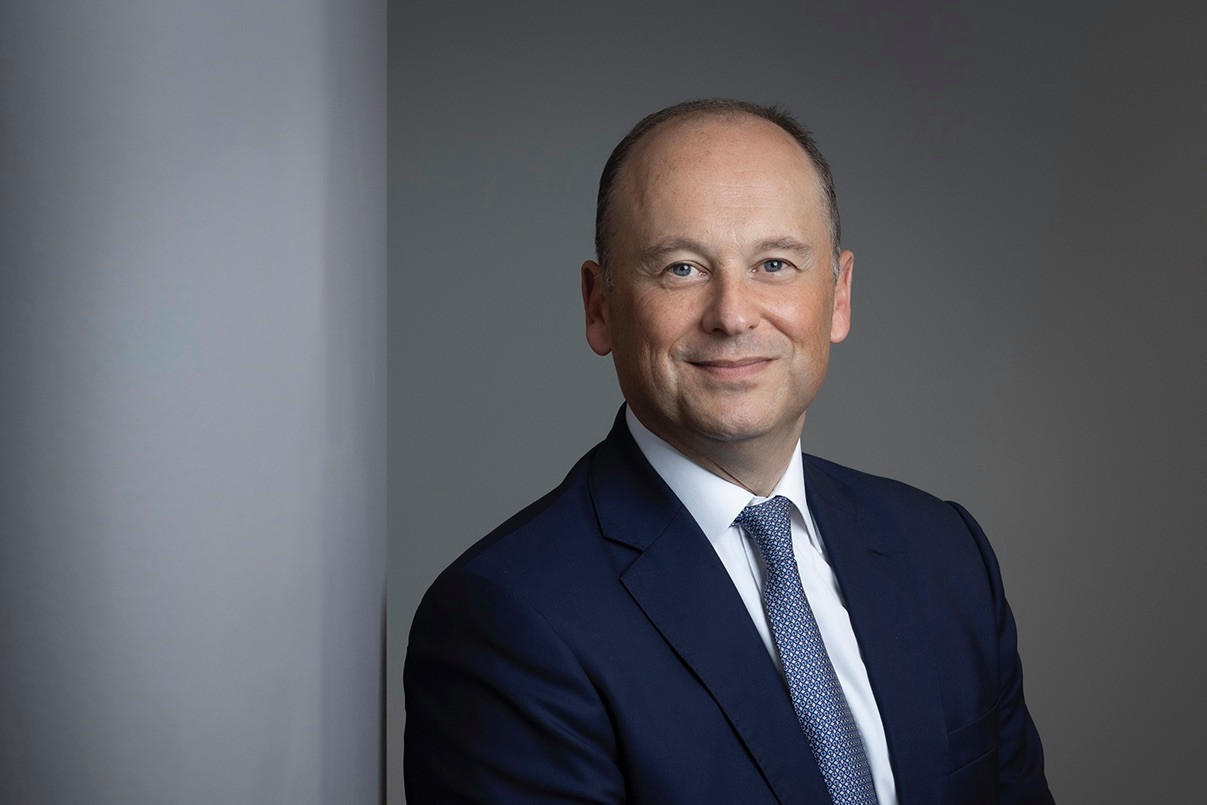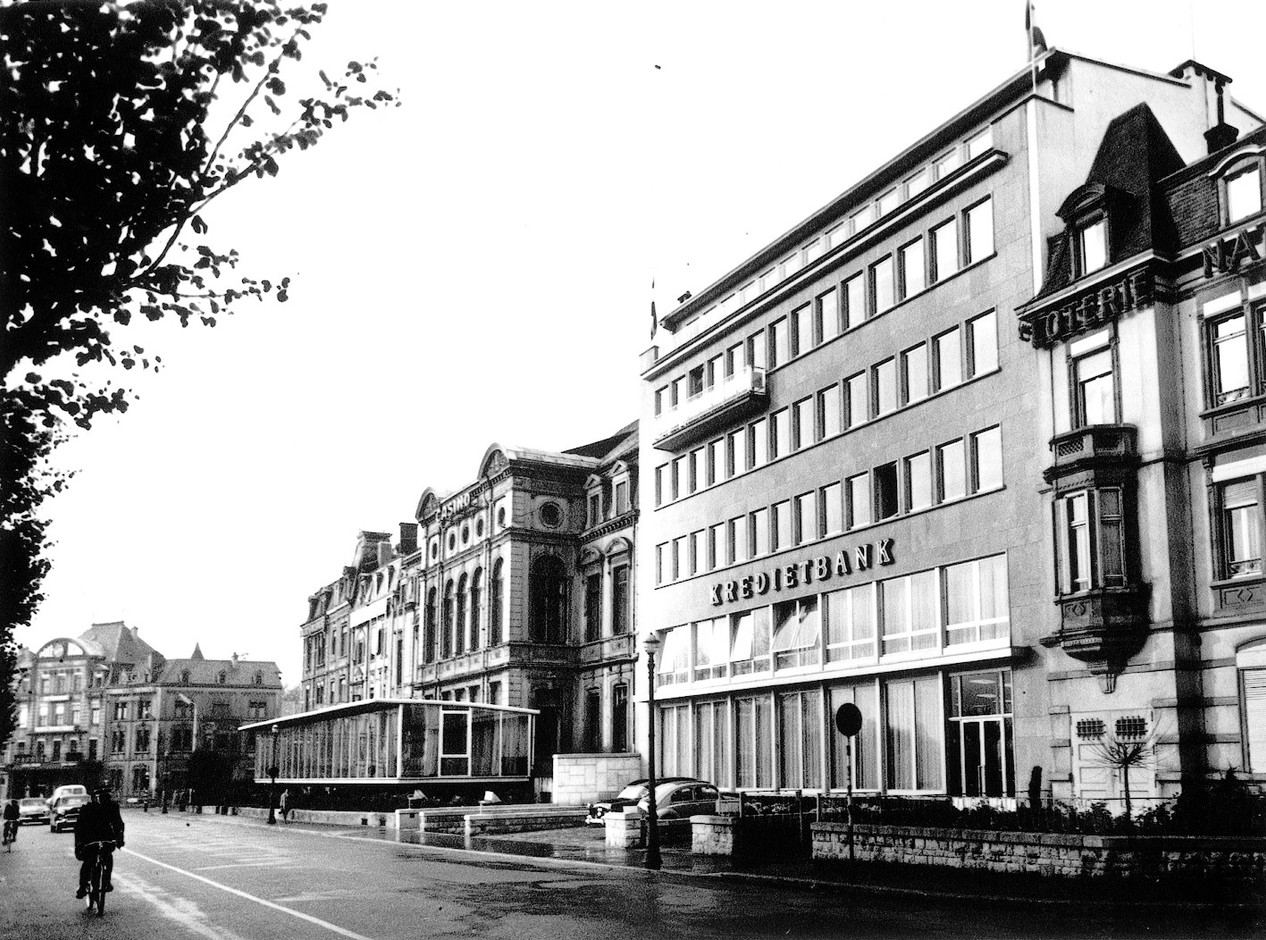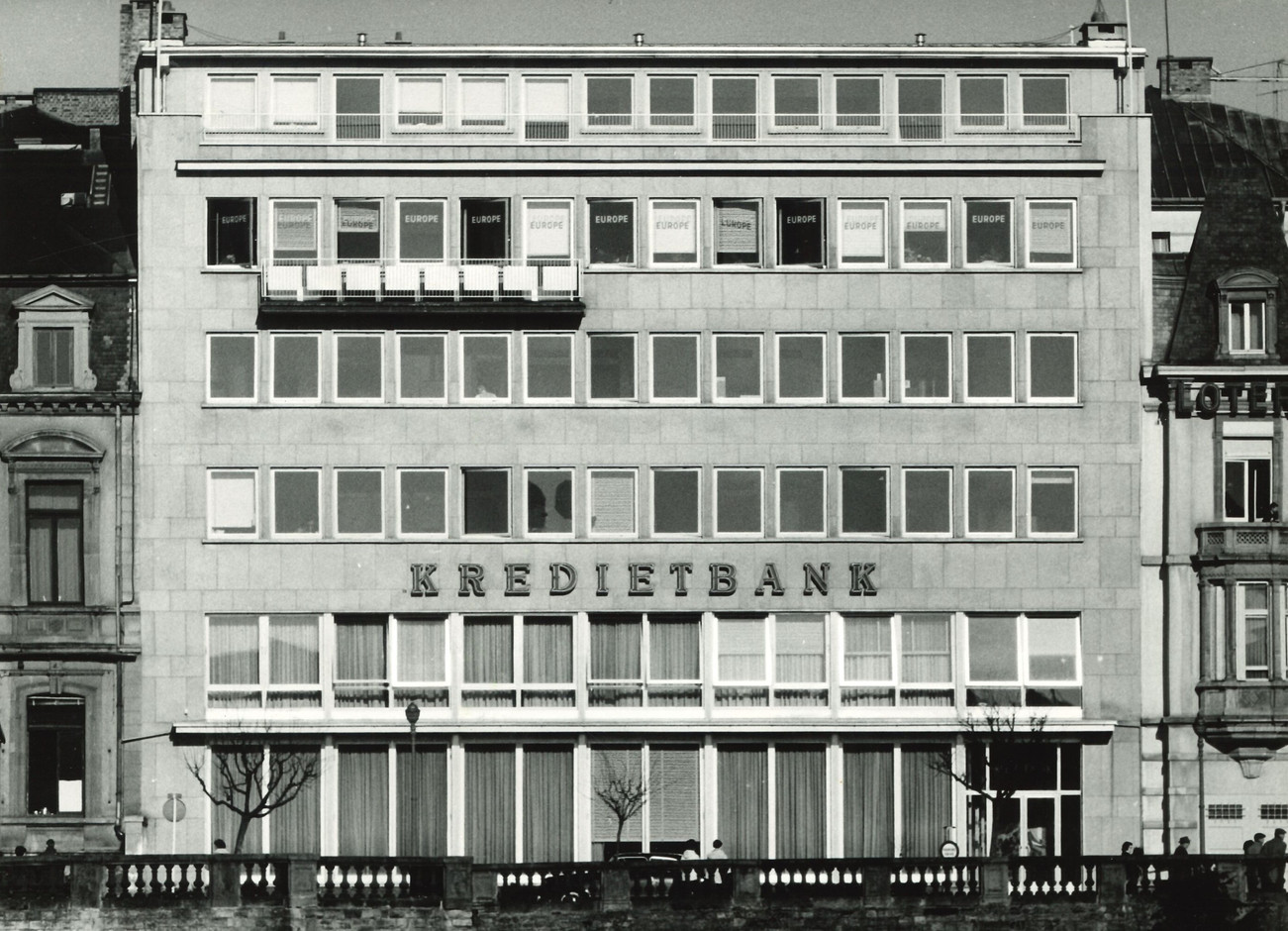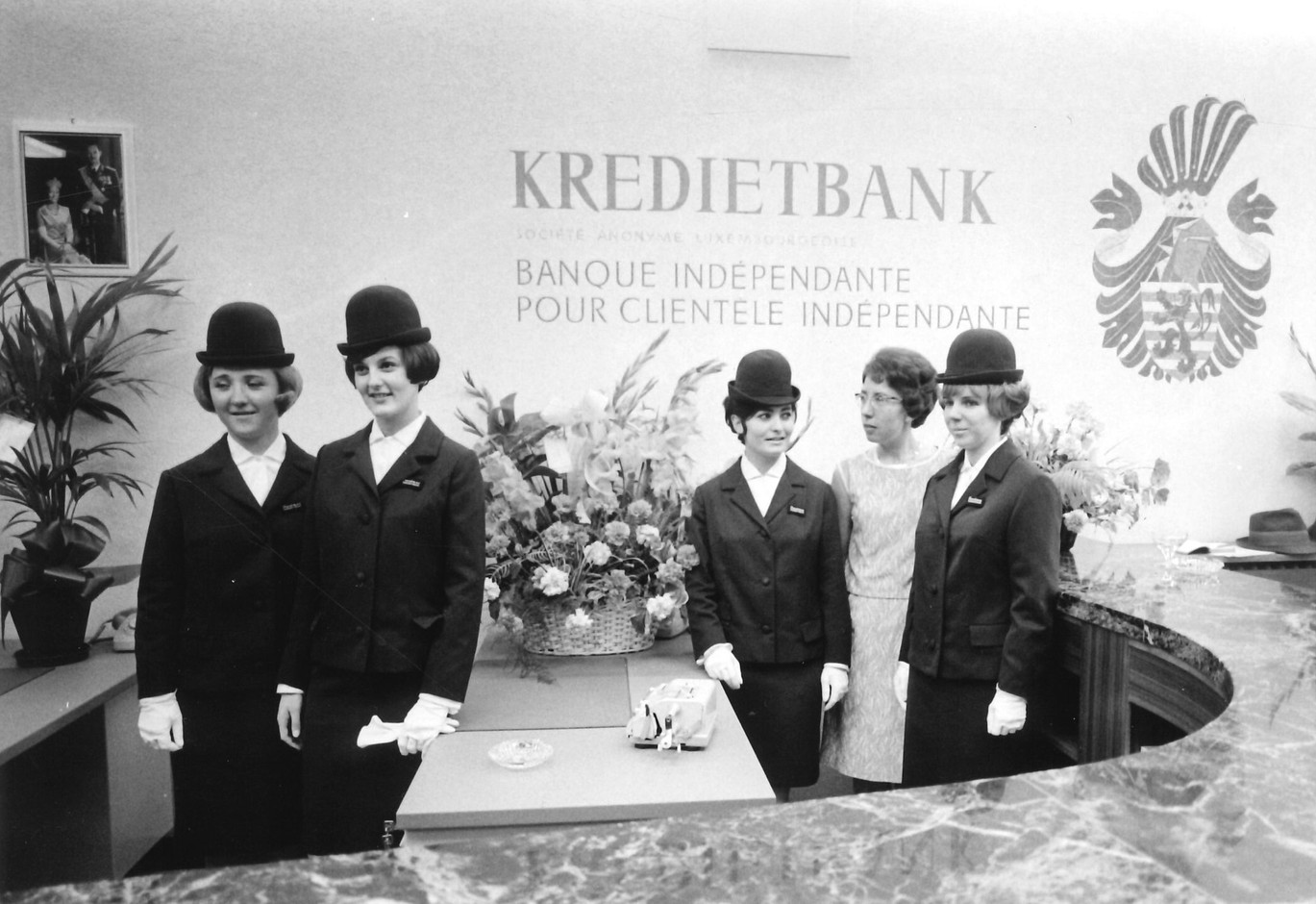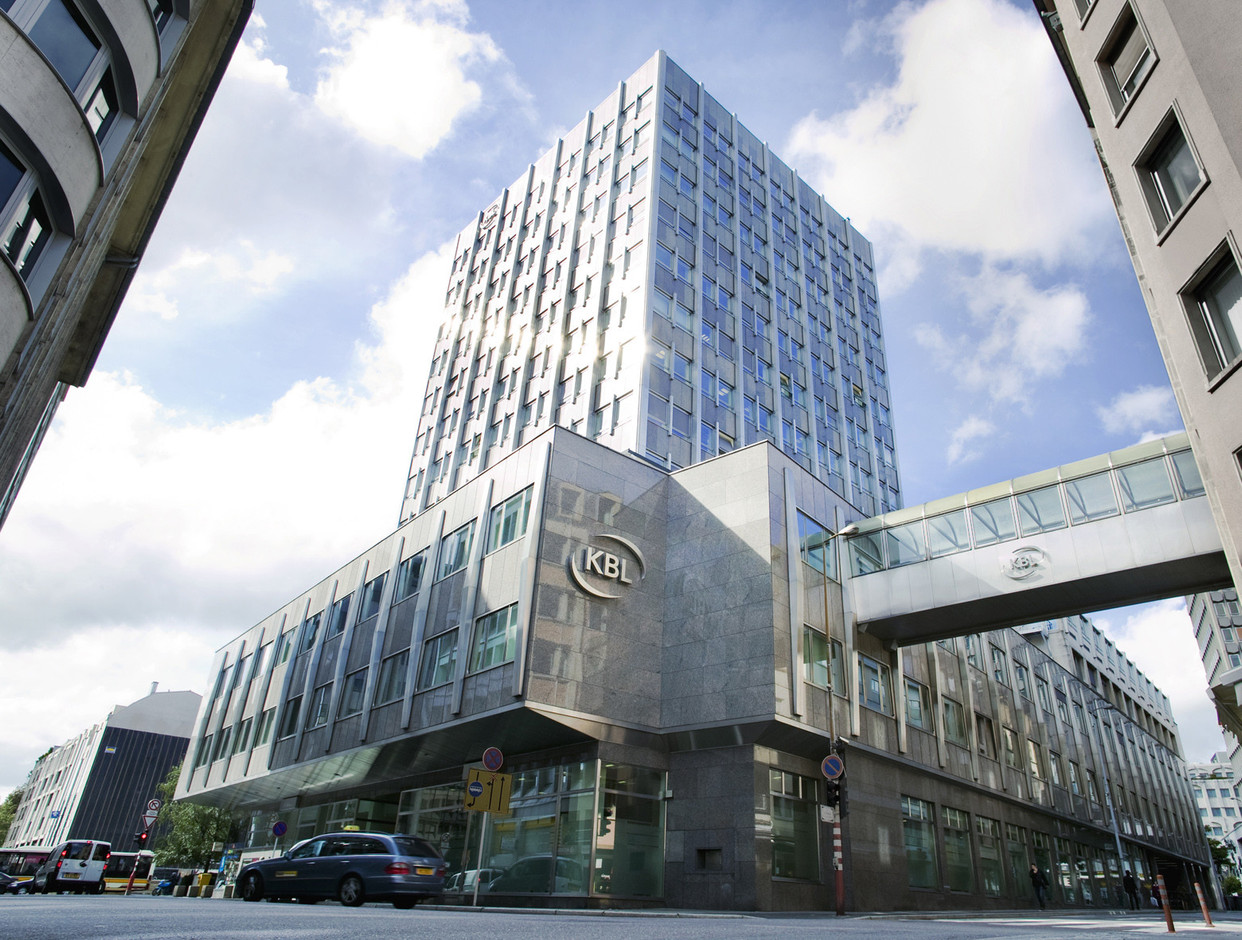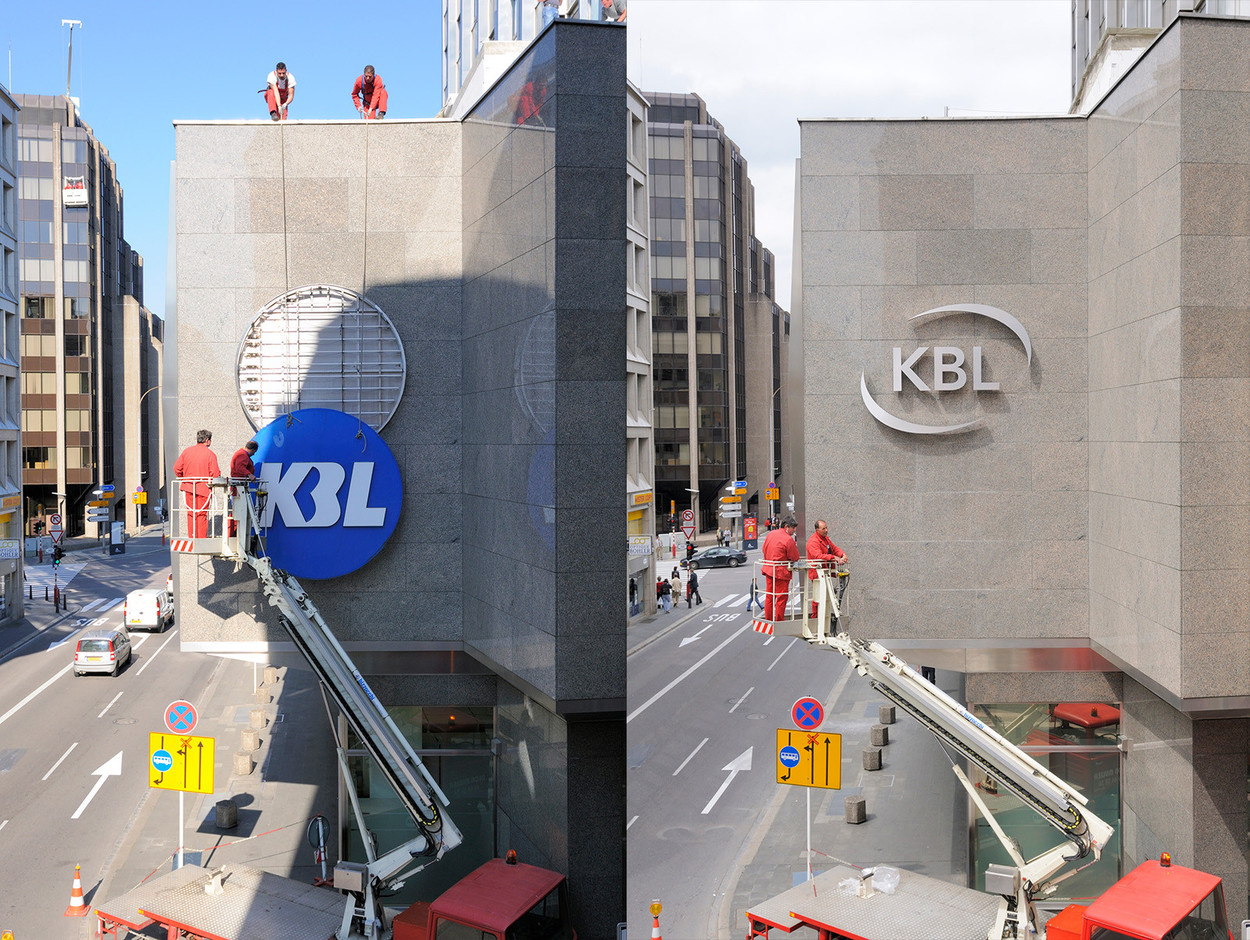May 1949. We’re just a few years after the end of World War II. How did the bank get started?
“Quintet at the time was called Kredietbank Luxembourgeoise,” explained secretary general during an interview ahead of the 75th anniversary. Marissens, who is also a member of Quintet’s authorised management committee, has been with the bank for over 30 years, starting as a portfolio manager, and has also worked at Brown Shipley, the bank’s UK subsidiary.
Kredietbank Luxembourgeoise’s parent company at the time was Kredietbank--one of the largest banks in Belgium--who had an important corporate client: Goodyear. As part of the Marshall Plan, which aimed to support the post-war economic recovery of Europe, Goodyear set up a plant in the grand duchy, said Marissens.
But it needed a bank. “What was more easy at the time for a company was to ask its banking partner in Belgium to set up a bank in Luxembourg. And that was the start of Kredietbank Luxembourgeoise, which became then over time Quintet as it is today, and which transformed from a corporate, more domestic-focused bank into a pan-European private bank.”
The Luxembourg-based bank acquired a stake in the UK-headquartered Brown Shipley in 1986, then 100% of the company in 1992. In the years after, it acquired wealth managers in Germany, the Netherlands and Belgium, establishing an arm dedicated to asset management and another to serve institutional and professional clients. Merging all of the years of experience of the group’s different locations brings Quintet to just under 1000 years of expertise: roughly 500 years if you include the UK, Belgium and Germany; another 400 years thanks to the Netherlands; and top that up with 75 years in the grand duchy.
Quintet’s link to the Oscars
Asked about a little-known anecdote, Marissens replied that “30 years ago, we had a film financing activity. We even had a rep office in LA at some point in time for that. We financed a couple of movies, among which one that was nominated for the Oscars.”
The film in question? Daens, a Belgian drama based on a true story that focuses on a 19th century social struggle and a priest named Adolf Daens who tries to improve factory working conditions. It was nominated for the Academy Award for best foreign language film in 1992.
Biggest change: end of banking secrecy
What’s the biggest change, surprise or challenge that Marissens has seen over the past three decades?
The end of banking secrecy in Luxembourg, he replied. “We are a private bank. Banking secrecy in Luxembourg--30 years ago, 40 years ago--was part of the environment in which clients came to Luxembourg. And the dismantlement of banking secrecy was--for sure, for all banks in Luxembourg, but also for us--a big challenge.”
Read also
“That being said, because we had constructed in the meantime a network of private banks in Europe, we were well-prepared for that event happening because we had domestic private banking operations in most of the countries where our clients came from.”
At the “heart” of EU financial ecosystem
But beyond banking secrecy--and beyond Luxembourg--the financial services industry has evolved over the past years, said group CEO . In some cases, regulation has been strengthened; in other cases, it’s weaker. “The market--and individual countries within the market--have had to adapt to find their place.”
It has evolved and found its place at the heart of the EU’s financial ecosystem
Allen joined the bank in July 2022, moving over from London. “I find--as a relative newcomer, to someone who spends the majority of the working week in Luxembourg--it’s a tiny place, and yet it has evolved and found its place at the heart of the EU’s financial ecosystem. And it has developed a strategy that welcomes companies and people,” he said. “I think it’s done a remarkable job.” Post-Brexit, he noted, “Luxembourg for the EU has become much more important.”
“Luxembourg is our home”
Quintet has extended its reach beyond the grand duchy. Why does Luxembourg remain an important location for the group?
“Luxembourg is our home,” replied Allen. “It’s our head office, but spiritually, more than that, it’s our home--and will remain that.” Describing Quintet as “an EU bank with a UK subsidiary,” he continued that “our place here in Luxembourg is incredibly important to fulfil not just what we’re doing today, but what we want to do tomorrow as well.”
“And I think that the stability as a financial centre that Luxembourg has is incredibly important for clients. They entrust Quintet--yes, to manage their wealth--but at the same time, they need to know that we’re regulated by the CSSF [Financial Sector Supervisory Commission] in Luxembourg; we’re under the overall umbrella of the ECB [European Central Bank]. That’s really important for clients as well and trusting their family wealth to us here in Luxembourg.”
“Luxembourg has been--and is still--a good home for us,” added Marissens. Quintet’s network of private banks were previously separate legal entities with local banking licences. “In 2020, we decided to merge them all into our Luxembourg banking licence, so they became--instead of banks--branches from a legal point of view. This didn’t change much for the local clients, because we still are keen to keep the local proximity to our clients. But from an organisational perspective, it simplified our structure and made Luxembourg even more important in the steering of the group.”
Possibility of geographical expansion in the future
Quintet in late 2021, but its has been more of a success. Are there plans to continue to expand geographically in the future?
“Our investments into the bank in Switzerland came with terrible timing in many respects,” said Allen. “It was right at the start of covid, and then lockdown, and that changed dramatically the business plan that had been put in place pre[-pandemic]. So the decision was made towards the end of ‘21 to not continue with a business plan that had become incredibly difficult because of covid.”
Read also
But the situation between Switzerland and Denmark is different, he explained. “Switzerland was a standalone bank--a subsidiary bank. What we have done with Denmark is we have created a branch of Luxembourg.” It has “a much more simple operating model; the clients’ assets are booked with us in the bank in Luxembourg, but we have a branch office in Copenhagen, in Denmark, where our staff engage and advise our clients.”
“That is a really good and efficient operating model,” said Allen. “Yes, I expect to see us do more of that in the future. But, given the comment that it’s a branch of Luxembourg, I expect to see us do that within the EU. That’s where the synergies and the efficiencies really work.” In terms of target markets, “I expect to see us doing this in one where we don’t have an on-the-ground presence today.”
And, “we are always looking for people to come on board and join us as part of the next 75 years,” he added. “We’re custodians of [the] brand in many respects. But you know, we will be gone at some point in the future, and the next Chris and Siegfried will come along, and it’s making sure that we maintain that place at the heart of the economy as well.”
75 years in the future?
Zooming 75 years ahead would bring us to 2099. Will Quintet still be here in the grand duchy? With the arrival of new technology, will humans still be involved in banking? What might the bank of the future look like?
“As much as we can see into the future, yes. Luxembourg is our head office and our home,” answered Allen. “And I would expect that to remain the case.”
“Will humans still be involved in banking?… I do believe that humans will remain involved in managing personal wealth,” he continued. “Of course, more and more technology will be embedded in some or all of the processes that we run. But I do expect that personal touch, that personal service supplemented by ever strengthening use of technology will be an operating model at least--let’s be realistic--for the next maybe 10 to 20 years.”
My view on technology: in our industry today, we need to use it where it enables us to be safer
“My view on technology: in our industry today, we need to use it where it enables us to be safer. Safer for the clients, safer for the economies, the societies in which we operate. It’s not that long ago that it was 2007-08-09.”
“Sitting behind our investment processes, we already use technology, and we’ll continue to use it,” he said. “But as I see it today, one of the areas we add the greatest value to clients is that personal interaction, that reassurance.” Successful though clients may be, many might not have the necessary financial knowledge to manage their wealth. With the amount of wealth due to be transferred to the next generation in the next 20 years, “our job is to make them feel safe.”
So what do clients want?
“For us to stay on top of the changing environment, risks and opportunities so that they don’t have to,” replied Allen. Referring to one of the first client conversations he had upon joining Quintet, “I asked them what they wanted from us. [The client] said: ‘I want you to worry, so my wife and I can spend time enjoying what we’ve worked the last 35 years for.’” Clients, Allen said, “want us to lie awake at night so they can sleep soundly.”
